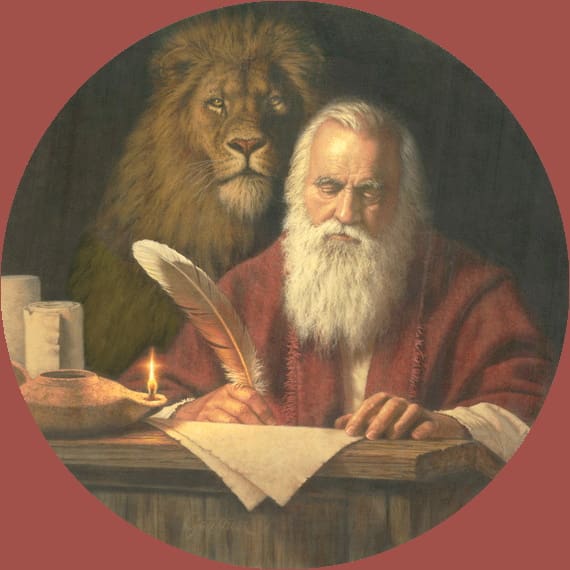Some people think discerning your vocation is like career planning, but today’s feast of Mark reminds us that praying about God’s will for your life is not exactly the same thing. It’s safe to say that Mark didn’t plan on being an evangelist. He knew many of the apostles; when Peter was miraculously freed from prison he went to the house of Mark’s mother (see Acts 12:12). Mark tried being a missionary with Paul and Barnabas, but went home before the missionary trip was over, and this upset Paul so much that when Barnabas tried bring Mark along again, he and Paul parted ways over it (see Acts 12:25, 15:37-39). It seems the missionary life wasn’t for him.
Scripture doesn’t chronicle it, but tradition holds that Mark eventually started helping Peter as a secretary (see today’s First Reading) and the accounts in Mark’s Gospel were probably the ones he heard from Peter himself. Mark probably didn’t appreciate the importance of his work in his lifetime, but we all owe him a debt for helping us remember the life of Christ through his Gospel.
What does God want you to do with your life? Don’t focus on big plans, but know he already has big plans for you. Just take one step at a time, asking Our Lord to guide you, and be open to his will.
Readings: 1 Peter 5:5b–14; Psalm 89:2–3, 6–7, 16–17; Mark 16:15–20. See also Feast of St. Mark the Evangelist.

